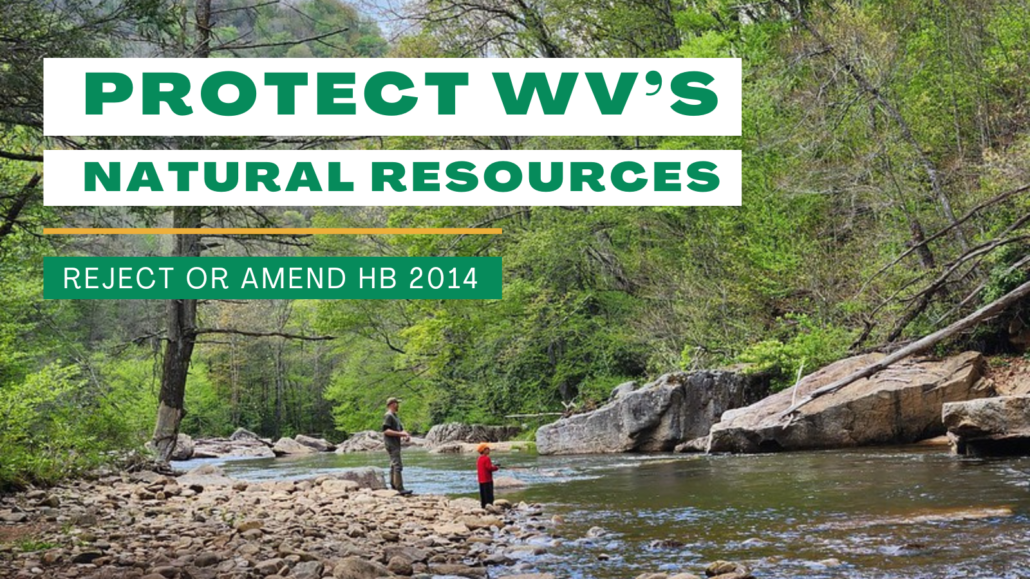“High Impact Data Centers” could be on their way to West Virginia
We are quickly approaching the last day of the 2025 regular session on Saturday, April 12, 2025. This means that the legislature is busy, with some bills moving fast to try to get out of the House or Senate, while other bills are stalled and not moving at all.
Today, we’re writing to you about House Bill 2014, which could bring “High Impact Data Centers” to West Virginia. The Senate is preparing to vote on HB 2014 within the next few days.
Earlier this session, Governor Morrisey held a press conference, paving the way for data center development. He was quoted saying that data centers are “anxious to come to West Virginia and start using our natural resources as a main source of power.” Our friend Quenton King with West Virginia Environmental Council wrote this piece about how unprepared our state really is to handle these massive facilities that require extensive resources to operate. Our concerns with this bill include:
- Massive Land Use: These facilities and accompanying grids have a maximum development of 2,250 acres, or more than 3.5 square miles, presenting massive impacts to the communities they are built within.
- No Local Control: They are not “subject to any county or municipal zoning, horticultural, noise, viewshed, lighting, development, or land use ordinances, restrictions, limitations, or approvals.” This removes any local jurisdiction and gives residents little to no say about the location, setbacks, or impacts of these facilities.
- Unlimited Water Use: There are no limits on the water that may be extracted or used for these facilities. We have seen water concerns raised in neighboring Virginia, where some data centers are using upwards of 1 million gallons of water a day.
- Increased Energy Costs: While HB2014 does account for some grid stabilization and security, the build-out and maintenance of these data centers likely means even higher electricity rates for consumers like us.
As Delegate Evan Hansen (D-79) stated in the House Committee on Energy and Public Works, “These are significant industrial development sites with significant local impacts, and local governments need to be able to protect their citizens.”
- Restore local control over development decisions,
- limit excessive water usage by these facilities,
- and prevent higher electricity rates for West Virginians.
Thanks for sticking with us as we near the finish line. We appreciate all the times you have taken action and used your voice this session.
For clean water & healthy communities,
West Virginia Rivers Coalition




